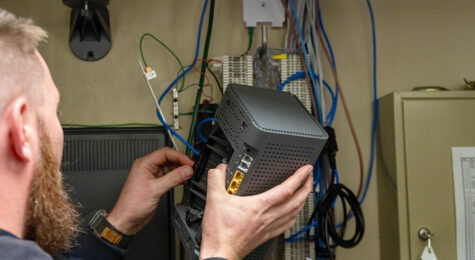Tennessee is a Hub for Health-care Research and Technology
Tennessee's life sciences industry delivers an impact felt around the world

From pioneering research to medical device innovation, life sciences discovery taking place in Tennessee is having an impact around the world.
The scope of life science enterprise in Tennessee is wide and deep, with heavy concentrations in research and testing laboratories, medical device manufacturing and bioscience-related distribution. Tennessee is home to FedEx and its World Hub in Memphis, the second-busiest cargo facility in the world and a state-of-the-art cold chain storage facility.
More than 1,700 life sciences businesses and organizations operate in the state, among them such household names as Johnson & Johnson, Merck, GlaxoSmithKline, Smith & Nephew, Medtronic and DeRoyal.
Helping to drive life sciences innovation throughout the state is the presence of major research institutions, including St. Jude Children’s Hospitals and the University of Tennessee Health Science Center in Memphis and Vanderbilt University in Nashville.
Health-care Ecosystem
Tennessee’s twin pillars in health-care research and delivery have put it on the lead lap in development of health-care technology, exemplified by the 2017 announcement that Philips, a global leader in health innovation and electronics, is establishing a center of expertise in Nashville, creating approximately 800 local jobs.
The new center will consolidate,into one U.S.-based hub a number of key business functions, including commercial operations, information technology and customer service operations, says Silvie Casanova, a director of communication for Philips North America.
The Nashville area is a health-care hub, with more than 400 health-care organizations and 250,000 jobs connected to health care throughout the region.
“Philips is well-positioned to contribute to and benefit from the health-care ecosystem in Nashville,†Casanova says.
Tennessee companies are emerging as health information technology innovators. Chattanooga’s Wecounsel, for example, has developed a HIPPA-compliant telehealth platform that connects behavioral health providers with their clients online. Tools include videoconferencing, scheduling, instant chat, secure messaging, document storage and billing
Wecounsel is used by more than 2,500 providers in every state. The technology also helps providers to serve millions of Americans living in areas with shortages of mental health-care providers.
Cities throughout the Southeast courted the company, says founder and CEO Harrison Tyner, a native of Chattanooga.
“I was pleasantly surprised by the rapid growth of the entrepreneurial ecosystem that (Chattanooga) had fostered,†Tyner says. “This is an impressively pro-business city and state. The community was ready to help and engage when we needed mentorship most, in the early days.”
From Concept to Operating Room
Tennessee is a leader in the medical devices frontier, with Memphis the second-largest center in the U.S. for orthopedic device manufacturing. Companies such as Smith & Nephew, Medtronic and DeRoyal have major operations in the state.
That critical mass of expertise has paved the way for a number of leading-edge life sciences startups, such as SweetBio in Memphis. The company has developed a membrane made of medical-grade manuka honey and proteins that can reduce complications and infections after dental procedures. The membrane is designed to be used as a barrier to protect bone regrowth and encourage gum regeneration after tooth loss or before dental implantation.
Kayla Rodriguez Graff, SweetBio co-founder and COO, says the company expects to receive FDA clearance by the first half of 2018 and will then bring its product to market.
Rodriguez Graff says her company was accepted into incubator programs in California and Tennessee, and chose to launch in Memphis in the ZeroTo510 accelerator program that focuses on life sciences startups.
“Memphis’ resources, including medical device investors, major strategic players in health care, tremendous research institutions – not to mention Southern hospitality – helped seal the deal,†she says.
In Chattanooga, 3D Ops captures CT scans and MRI images using 3D printing technology to create patient-specific anatomical models, so that a surgeon can study an exact replica of a patient’s heart, brain or other body parts before surgery begins. Surgeons can study and hold the 3D model and plan and practice a surgery before going into the operating room.
“Knowing this technology is now available, would you ever want a family member to have surgery without it?†asks Keith Campbell, 3D Ops president and CEO. “I think we’re going to have an amazing impact on countless people in the near future.



